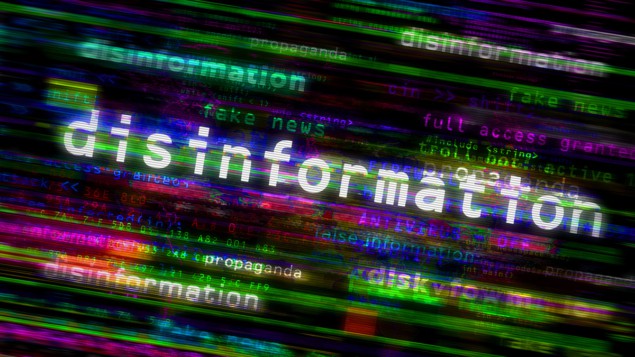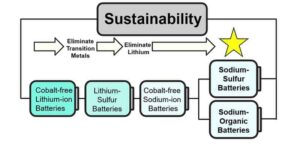Robert P Crease reviews On Disinformation: How to Fight for Truth and Protect Democracy by Lee McIntyre

Lee McIntyre is angry. He’s angry about the storming of the US Capitol in January 2021. He’s angry about lies concerning evolution, global warming and vaccines. He’s angry about the role of Facebook and X/Twitter in amplifying these lies. In one of his previous books, How to Talk to a Science Denier, the Boston University philosopher was enraged by science denial. In this one he’s enraged by something broader still: “reality denial”.
On Disinformation: How to Fight for Truth and Protect Democracy belongs to the genre of what I affectionately call “rant literature”. A physics example is Peter Woit’s Not Even Wrong: The Failure of String Theory and the Search for Unity in Physical Law (2006), whose author went ballistic over what he believes is a fatally flawed approach that has seized power among theorists. Other classics of the genre include Thomas Wolfe’s From Bauhaus to Our House and Henry Pleasants’ The Agony of Modern Music, which took aim at the pretentiousness of modern architects and composers, respectively.

How scientific models both help and deceive us in decision making
Rant lit assumes that it can bring people to their senses by exposing the vapidity of intellectual corruption vehemently enough. It’s fun to read if you don’t take it too seriously, for rant lit is full of dirty laundry, horrifying anecdotes and recognizable villains. The passion and axe-grinding make for wicked phrases and bright prose. Rant lit is feel-good writing for allies.
McIntyre’s book is no exception. On Disinformation is littered with witty put-downs such as “epistemic homicide”, “truth killers”, “firehose of lies” and “zombie foot soldiers”. The book’s villains include Donald Trump, Russian bots and trolls, and people on social media. Truth, it says, is under attack by a “co-ordinated campaign” of individuals and organizations who cherry-pick evidence and experts, and promote conspiracy theories and illogical thinking. That, plus select anecdotes and information, all but exhausts the book’s analytical content.
The spiritual tone is evangelical. It’s a truth-teller’s Bible, full of religious certitude and morally charged language. If you took an evangelical tract and replaced “morality” with “knowledge”, “God” with “truth” and “Satan” with “fact-deniers”, you’d pretty much have this book. It tells us that the “days are dark” and the world full of “cutthroats” who know exactly what they are doing and their minions who don’t. Saving reality is the burden of us knowledgeable ones, collectively and individually. “So now we must all just grab an oar and row,” McIntyre warns.
Rant lit assumes that it can bring people to their senses by exposing the vapidity of intellectual corruption vehemently enough. It’s fun to read, if you don’t take it too seriously
The final chapter contains the instructional content – our marching orders. He lists 10: confront the liars; learn from previous battles; try to be kind; treat those on the other side as victims; focus; don’t be deluded that the answer is education or critical thinking; accept that victory will not be easy; demand more resources from politicians; take comfort in your allies; and improve your intel. We must act quickly, for the US elections are only six months off.
But as with other rant literature, On Disinformation’s vivid prose is peppered with flaws and contradictions. Truth is sometimes said to be a weapon and sometimes what we are fighting for. We have history on our side but we have to act immediately or we lose everything; if we don’t win the next election, democracy dies if the Evil One makes his Second Coming. Disinformation is mainly due to foreign agents but we fight fellow citizens. When we confront zombie truth-killers out to get us, we have to be sensitive to them.

The prose also conceals undefined terms and unquestioned assumptions. What, after all, is truth? Personally, I know that the 2020 US election was not stolen, that global warming is real and that taking vaccines saved the lives of millions of people during the pandemic, including maybe my own. How do I know? Because of the journals and newspapers, the politicians and law courts, and the experts and acquaintances whom I largely trust. That reliance on trust is what makes me human.
Inspired and emboldened by the book, I went down the corridor to the office of a colleague whom I know voted for Trump – rare in academia, at least in the north-east of the US, but he was within walking distance. He was receptive, even grateful, to speak to someone who didn’t treat him as the enemy. When I brought up specific instances of disinformation, such as about the election and the number of people at Trump’s inauguration, he was largely indifferent, but said he had voted based on other factors.
He was concerned about erosions of equality and freedom, and outraged over the dominance of cancel culture, especially in our university. He attacked election deniers, embraced the two-party system, and pointed out that 74 million Americans voted for Trump – were these all zombies? He hated being treated as an enemy of truth and “un-American”, which made him even more resolute. For much information he relied on websites and links e-mailed by friends. He said he’d vote differently if he thought it reasonable. In short, he was not a minion but trying to make sense of what he saw around him with a different set of concerns than McIntyre.
The prose conceals undefined terms and unquestioned assumptions. What, after all, is truth?
To be fair, McIntyre occasionally admits that people who do not share his views about what’s real are not necessarily morons. Beliefs, he says at one point “are heavily influenced by community, trust, values and how we see ourselves in relation to the people around us”. But that’s no excuse, McIntyre says. It’s a war out there. Donald Trump has called his adversaries “vermin” who must be “rooted out”. In the next US election, evidently, it’s zombies vs vermin. The latter must prevail.
I closed On Disinformation loving the rant, cheering the author, agreeing with each of his positions and thrilled to be on the side of the angels – or at least of the realists.
But I also felt that, if we think of reality as something we are fighting over, we have misunderstood what reality is, who our opponents are and how they operate. When reality has become a battleground, truth is already lost.
- 2023 MIT Press 184pp $14.95pb
- SEO Powered Content & PR Distribution. Get Amplified Today.
- PlatoData.Network Vertical Generative Ai. Empower Yourself. Access Here.
- PlatoAiStream. Web3 Intelligence. Knowledge Amplified. Access Here.
- PlatoESG. Carbon, CleanTech, Energy, Environment, Solar, Waste Management. Access Here.
- PlatoHealth. Biotech and Clinical Trials Intelligence. Access Here.
- Source: https://physicsworld.com/a/lee-mcintyre-the-rant-lit-philosopher-whose-angry-new-book-is-peppered-with-flaws-and-contradictions/
- :has
- :is
- :not
- ][p
- $UP
- 10
- 150
- 2006
- 2020
- 2021
- 90
- a
- About
- Academia
- Accept
- accepted
- Act
- After
- agents
- agreeing
- aim
- All
- already
- also
- Americans
- among
- amplifying
- an
- Analytical
- and
- angels
- answer
- approach
- architects
- ARE
- around
- Art
- AS
- assumes
- assumptions
- At
- attack
- author
- based
- battleground
- battles
- BE
- because
- become
- being
- beliefs
- believes
- book
- Books
- boston
- Boston University
- both
- bots
- Bright
- bring
- broader
- brought
- burden
- but
- by
- call
- called
- CAN
- capitol
- Chapter
- charged
- Citizens
- classics
- click
- closed
- colleague
- collectively
- comfort
- coming
- community
- concerned
- concerning
- Concerns
- Conspiracy
- conspiracy theories
- contains
- content
- corridor
- Corruption
- Courts
- critical
- crowd
- Culture
- deal
- decision
- Demand
- Democracy
- different
- differently
- digital
- disinformation
- distance
- do
- doing
- Dominance
- donald
- Donald Trump
- Dont
- down
- due
- during
- each
- easy
- Education
- Election
- Elections
- embraced
- enough
- equality
- especially
- Even
- everything
- evidence
- evolution
- exactly
- example
- exception
- experts
- factors
- Failure
- fair
- fellow
- felt
- fight
- fighting
- final
- flawed
- flaws
- Focus
- Foot
- For
- foreign
- Freedom
- friends
- from
- full
- fun
- genre
- get
- Global
- global warming
- grab
- graphic
- grateful
- had
- Have
- he
- heavily
- help
- henry
- him
- his
- history
- horrifying
- How
- How To
- HTTPS
- human
- i
- if
- image
- immediately
- improve
- in
- inauguration
- include
- Including
- Individually
- individuals
- influenced
- information
- instances
- instructional
- Intel
- intellectual
- issue
- IT
- January
- January 2021
- jpg
- just
- Kind
- Know
- language
- largely
- Law
- LEARN
- least
- Lee
- lies
- links
- Lists
- literature
- Lives
- lose
- lost
- loving
- made
- mainly
- make
- MAKES
- max-width
- maybe
- me
- Media
- million
- millions
- MIT
- models
- Modern
- months
- more
- much
- must
- my
- narratives
- necessarily
- New
- Newspapers
- next
- no
- now
- number
- of
- off
- Office
- on
- ONE
- ones
- only
- open
- operate
- opponents
- or
- orders
- organizations
- Other
- our
- ourselves
- out
- over
- own
- pandemic
- passion
- People
- Personally
- Peter
- phrases
- physical
- Physics
- Physics World
- plato
- Plato Data Intelligence
- PlatoData
- plus
- Point
- Politicians
- positions
- power
- press
- pretty
- previous
- promote
- protect
- quickly
- RARE
- Read
- real
- Reality
- reasonable
- relation
- reliance
- replaced
- Resources
- respectively
- Reviews
- Role
- ROW
- russian
- Said
- saved
- saving
- saw
- says
- Science
- scientific
- Search
- Second
- see
- seized
- select
- sense
- sensitive
- seriously
- set
- Share
- Short
- should
- showing
- side
- SIX
- Six months
- Social
- social media
- Someone
- something
- sometimes
- speak
- specific
- Still
- String
- such
- system
- Take
- taking
- Talk
- tells
- terms
- textual
- than
- that
- The
- the world
- their
- Them
- theory
- There.
- These
- they
- think
- Thinking
- this
- those
- thought
- thrilled
- thumbnail
- to
- TONE
- too
- took
- treat
- treated
- true
- trump
- Trust
- truth
- try
- trying
- under
- unity
- university
- us
- US election
- US elections
- vaccines
- Values
- victims
- victory
- views
- Villains
- Vote
- voted
- vs
- walking
- war
- Warns
- was
- we
- websites
- went
- were
- What
- when
- which
- WHO
- whom
- whose
- Wikipedia
- will
- win
- with
- within
- world
- writing
- Wrong
- you
- Your
- zephyrnet
- zombie












